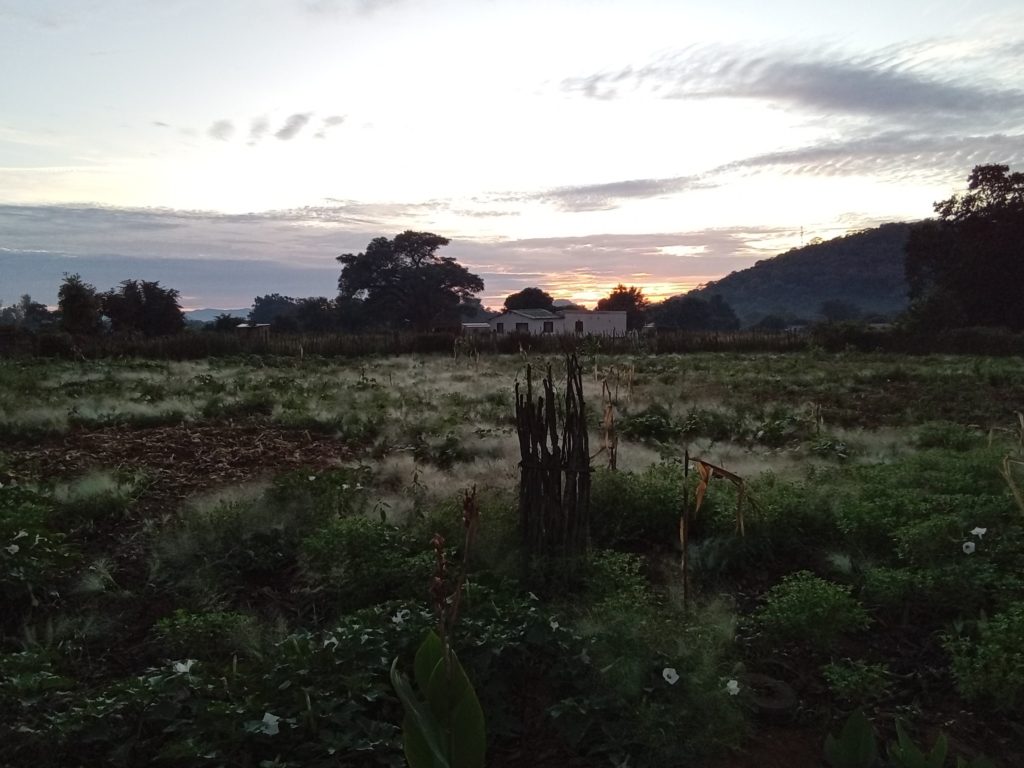The economic upheaval and supply chain disruptions in the manufacture of agricultural inputs caused by the war in Europe came at the same time as unexpected weather fluctuations at a vulnerable point in the growing season. Many farmers throughout Zimbabwe, including the Mwenezi District where SCORE is working, are facing maize and small grains failures due to drought during the growing season, followed in March by unseasonable rain storms. This caused catastrophic losses to just-ripening pea and bean crops for many farmers. For most farmers, this one two climate punch affected crops representing 80-90% of their annual income; to others, this crop may represent food they planned to eat from May to October when new food crops should be available. This has pushed farmers and their communities deeper into food insecurity.
Almost without exception the farmers who have survived this were ones who have been trained by SCORE in Conservation Agriculture techniques and planted at the most opportune time. It is heartening to see these farmers sharing with their neighbours, but the situation in Zimbabwe at large remains severe.
Agroscore, a sister social enterprise is working to alleviate hunger in these areas by aggregating the crops that have survived in order to obtain the best price for the farmers. If there is a bright side in all of this it is that more local farmers are realizing the importance of climate-adapted agriculture and more willing to learn/practice Conservation Agriculture (CA) combined with Agro-forestry and value added enterprises that can supplement and increase the farm income. All of which the SCORE team can provide training and support in various ways.


Recent Comments